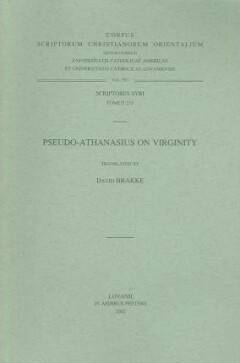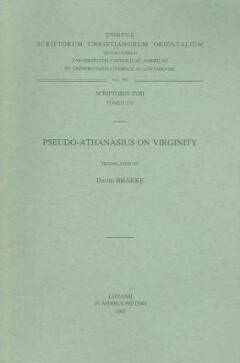
- Afhalen na 1 uur in een winkel met voorraad
- Gratis thuislevering in België vanaf € 30
- Ruim aanbod met 7 miljoen producten
- Afhalen na 1 uur in een winkel met voorraad
- Gratis thuislevering in België vanaf € 30
- Ruim aanbod met 7 miljoen producten
Zoeken
Omschrijving
This late ancient Christian treatise, preserved in Syriac and falsely attributed to Athanasius of Alexandria (d. 373), exhorts female virgins to be "holy in body and spirit" (1 Cor. 7:34) and to abstain from "all that is in the world - the desire of the flesh, the desire of the eyes, the pride in riches" (1 John 1:16). Drawing on themes developed in the 'de virginitate' literature of the fourth and fifth centuries, the author instructs virgins on their proper physical deportment and use of the five senses, but he incorporates into his work exhortations to purity and repentance originally addressed to a wider audience of male and female ascetics and perhaps even laity. Most likely a translation of a Greek original composed between the fifth and ninth centuries, the treatise is of interest also for its frequent and inventive use of the Bible in support of the ascetic ideal.
Specificaties
Betrokkenen
- Auteur(s):
- Uitgeverij:
Inhoud
- Aantal bladzijden:
- 48
- Taal:
- Engels
- Reeks:
Eigenschappen
- Productcode (EAN):
- 9789042910911
- Verschijningsdatum:
- 31/01/2002
- Uitvoering:
- Paperback
- Formaat:
- Trade paperback (VS)
- Afmetingen:
- 167 mm x 240 mm
- Gewicht:
- 195 g

Alleen bij Standaard Boekhandel
+ 100 punten op je klantenkaart van Standaard Boekhandel
Beoordelingen
We publiceren alleen reviews die voldoen aan de voorwaarden voor reviews. Bekijk onze voorwaarden voor reviews.











